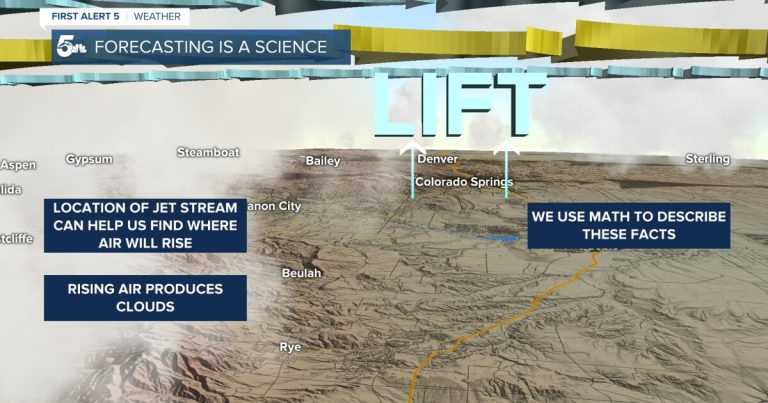Weather forecasting is more than just looking at weather models, at least as long as we have humans predicting the weather. When models don't work properly or we don't have access to certain weather tools, we still provide you with accurate forecasts. Ultimately, it's because modern meteorology dates back to the 18th and 19th centuries…and we've had a lot of time to hone the science. Let’s look at an example…jet streams.


After decades of research and observation, we know that the jet stream exists because the sun heats the equator much more than it heats the poles. Energy moves from the equator to the poles, and through some strange processes creates large amounts of wind in our region of the world.

We can further use the jet stream to determine where the air is likely to rise and thus determine cloud formation. The science we bring to you every day boils down to a lot of mathematical equations. Our computer models take observations, use mathematical models we've developed over centuries, and then simulate what the atmosphere should do. In the event of technology disruption…these models may become less accurate, less reliable, or even inaccessible.
However, even if the model does not work properly, we can still look at various observations.


Weather models take data from radar stations, satellites, ground-based weather stations, weather balloons with airborne weather stations, and even airplanes! This means that any single data source failure will not significantly disrupt the forecast.
Anyway, we don't just look at models. We draw on local expertise, combined with forecasting experience and an understanding of basic science, to draw our conclusions.

When we show you FutureCast now on air, we start by analyzing data from all of these places. We then decide what to show you based on the science itself and adjust the models you see accordingly.
Essentially, even if we lose the current radar data from a single radar site… we can turn to another site, satellite radar, or any other tool to figure out what's going on and give you an accurate forecast. This is another reason First Alert Five is more reliable than weather apps. The application does not know when the data source fails and cannot switch to other methods to produce predictions. We can.
____
Do you have a question or story idea you'd like the First Alert 5 Weather team to consider? Email: weather@koaa.com
Watch KOAA News5 anytime with our free streaming apps for Roku, FireTV, AppleTV and Android TV. Just search KOAA News5, download and start watching.
